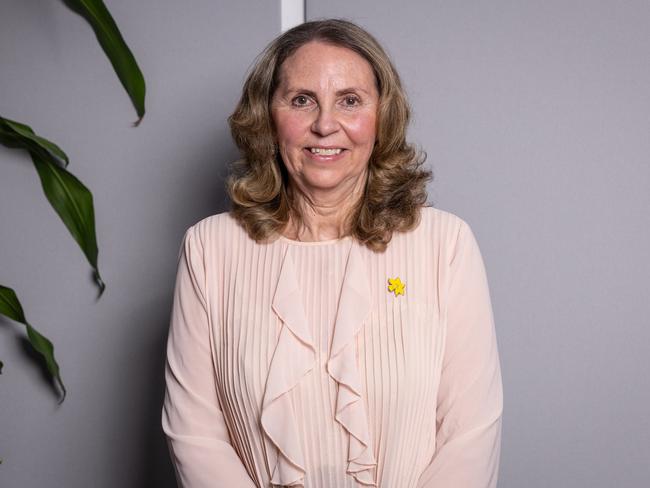Bowel cancer is preventable but Aussies won’t do the test
Australia’s second most deadly cancer is preventable but we’re refusing to do a free test could save our lives. See why testing rates have plummeted.
National
Don't miss out on the headlines from National. Followed categories will be added to My News.
Exclusive: Bowel cancer testing rates have plummeted and nearly two thirds of Australians are refusing to do the free test that is delivered to their door.
This is even though the condition is Australia’s second most common cause of cancer death, killing 103 people each week, and early detection can be lifesaving.
Natural disasters including bushfires and floods are being blamed for the drop-off.
On Friday the government will unveil a new $10.8 million advertising campaign reminding Australians to ‘Get2It’ and do the test.
Next week Bowel Cancer Australia will bring 50 young Australians with early-onset bowel cancer to Parliament House to campaign for the screening age to be lowered from 50 to 40.
The cancer is becoming more common in those aged under 50, with those born after 1990 having double the risk of colon cancer of someone born in 1950.
It is now the deadliest cancer for those aged 25-44.

New draft guidelines released last month recommend the National Bowel Cancer Screening Program (NBCSP) be expanded to cover free stool tests every two years for people aged 45-74.
Those aged 40-44 would also be able to ask their GP for a screening test every two years outside the NBCSP until the free testing program kicks in.
New data from the Australian Institute of Health and Welfare shows Australia’s national bowel screening rate dropped from 43.8 per cent in 2019 to 40.9 per cent during 2020-2021.
More than 6 million Australians were sent a test in that two year period but only around 2.5 million returned their samples for screening. That’s around 179,000 fewer people returning their tests in 2020-2021.
At the same time Bowel Cancer Australia CEO Julien Wiggins said the wait time between a positive screening result and colonoscopy has increased in every state and territory, with participants waiting between 119 days in Western Australia and 235 days in Tasmania, depending on where they live.

“Only 15.6% of participants with a positive screening result were reported as having received a colonoscopy within the clinically recommended timeframe of 30 day,” he said.
The new advertising campaign will air on TV, radio and social media, and sporting organisations including the NRL will help promote the cause.
Karen Grega was shocked to discover her bowel screening test was positive just 11 months after being given the all clear in a colonoscopy.
The rectal cancer had already spread to her lymph nodes and after surgery it spread to her liver but she responded well to treatment and has been cancer-free for over 12 months.
The 65-year-old marketing consultant from Sydney said she gets angry when she hears about people refusing to do the test.
“You get a test delivered straight to your house. It doesn’t cost you anything. All you need to do is open the envelope and do it. People have said to me it’s a bit yucky but if you’ve got a dog or had children you’ve picked up dog poo, you’ve changed dirty nappies. Or you’ve probably changed the cat litter tray.”
Ms Grega has produced a 10 part podcast named ‘Love, Laughter & Loo Time.’ That provides valuable insights on managing the disease.





